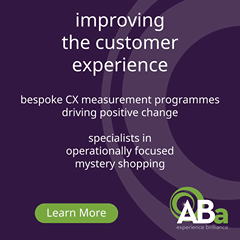Survey exposes consumer misconceptions and the impact of returns fraud on retail
In a survey conducted by ReBound in collaboration with Censuswide, alarming statistics have come to light, revealing that 48% of consumers openly admit to engaging in returns fraud.
Unveiling the retail reality – Returns fraud grips consumers and challenges industry stability.
Despite 84% of consumers saying they have not and would not commit fraud, a large number are unclear on what actually qualifies. Nearly a third of respondents (31%) think using an item then returning it as unused doesn’t count as fraud, although 57% do think that it’s unethical.
This level of returns fraud puts a huge strain on the retail sector, with the National Retail Federation (NRF) estimating that 10% of the value of returned merchandise is lost to fraud, at a time when the industry cannot afford it.
Laura Garrett, returns expert at ReBound, said: “Retail margins are tighter than ever as inflation continues to push up costs and the cost of living crisis squeezes consumer spending. Retailers and brands are reacting, with some making the decision to charge for returns.
“Consumers fraudulently returning items is placing an additional burden on the bottom line at a crucial time of year for retailers and brands and may push more brands to charge for returns. The festive period also creates a spike in these fraudulent returns, with clothing worn to Christmas parties a particular problem.
“As retailers look for solutions, an increasing number have started to consider banning serial returners. The challenge is that this cohort includes both their most loyal customers as well as the fraudsters. Only comprehensive end-to-end returns management can provide the data and insights needed to tell the difference. A returns management system can also help retailers with local item verification, tackling the problem of wrong item returns, while streamlining the processing of genuine returns and refunds.”
A lack of alternatives
One major challenge for retailers is providing a solution for consumers who may need an item in the short term, but for whatever reason, don’t want to purchase it outright. With the current economic climate, more shoppers are unable to justify spending, so look at returns as a way to recoup costs. Renting and buying second hand can both provide cheaper options for consumers, but in many cases the option to rent either doesn’t exist, or isn’t known about.
A significant 43% of British shoppers have never rented a product, and formal attire was the only category where more respondents had rented (16%) than returned after use (12%).
One reason given for those who had used and then returned an item was a lack of available and appropriate rental options (33%), while a further 17% cited the cost of rentals as a barrier.














